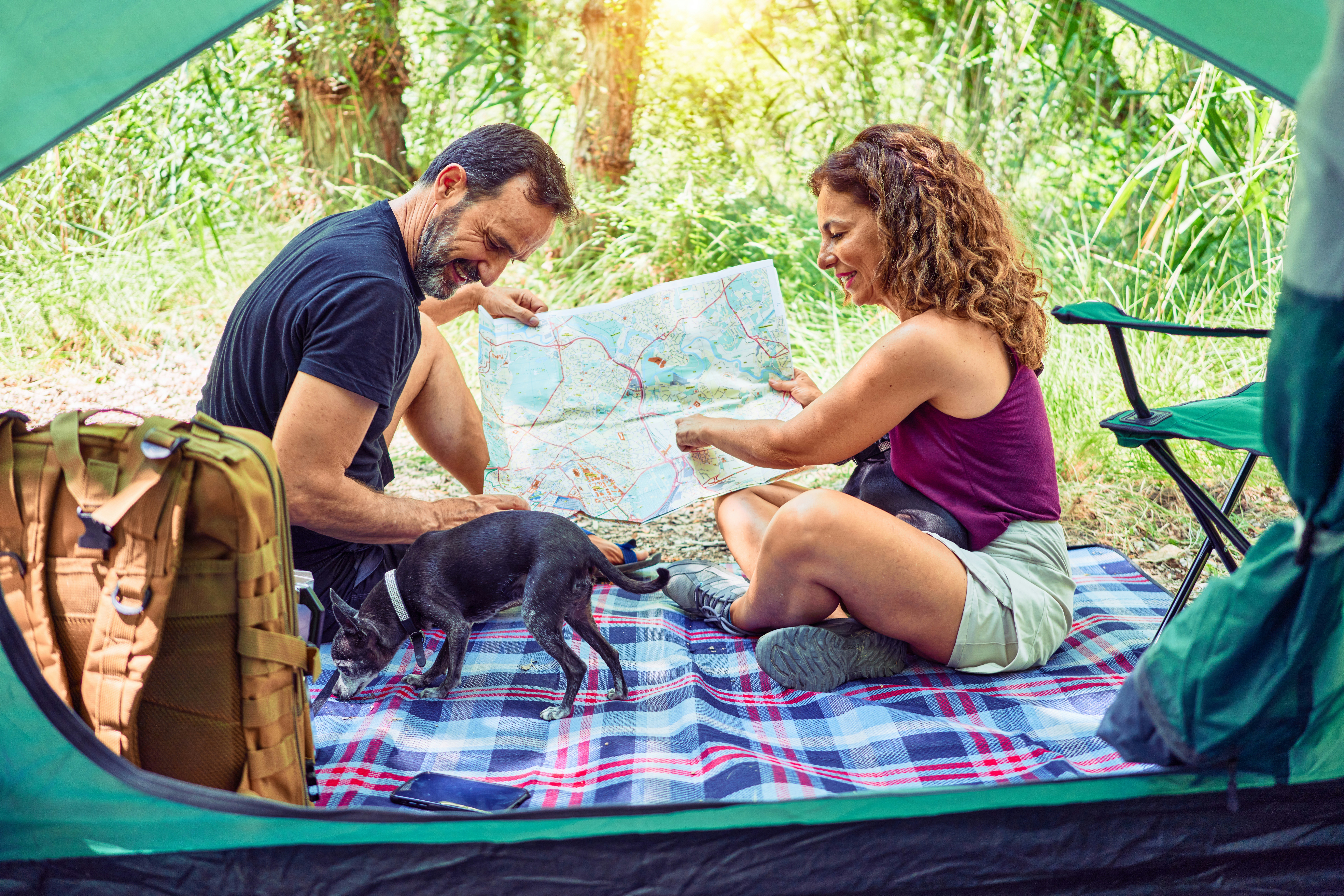The Ultimate Guide to Camping for Beginners
Discover essential tips, tricks, and gear for a successful first camping trip. This comprehensive guide will prepare you for an unforgettable adventure in the great outdoors.
 krakenimages on Unsplash
krakenimages on UnsplashCamping is a fantastic way to connect with nature, relax, and enjoy the great outdoors. If you're new to camping, this comprehensive guide will help you prepare for your first adventure.
Why Go Camping? Benefits and Joys of Camping
Camping offers numerous benefits, including a chance to unplug from technology, reduce stress, and bond with family and friends. It's also an opportunity to explore new environments and engage in physical activities like hiking and swimming.
Choosing the Perfect Campsite: National Parks, State Parks, and Private Campgrounds
Selecting the right campsite is crucial for a successful trip. National parks provide stunning landscapes and various amenities, while state parks often offer a more budget-friendly option. Private campgrounds can range from rustic to luxurious, catering to different preferences and needs.
Essential Camping Gear: What You Need to Bring
Your camping gear will make or break your experience. Here's a list of essentials:
- Tent: A sturdy, weather-appropriate tent is crucial for shelter and comfort.
- Sleeping bag and pad: Ensure a good night's sleep with a quality sleeping bag and pad.
- Cooking equipment: Bring a portable stove, utensils, and a cooler for food storage.
- Clothing: Pack clothing suitable for the weather, including layers for varying temperatures.
- First aid kit: Be prepared for minor injuries with a well-stocked first aid kit.
- Headlamp or flashlight: Light your way in the dark with a reliable headlamp or flashlight.
- Maps and compass: Navigate your surroundings with accurate maps and a compass.
How to Set Up a Campsite: Tents, Sleeping Bags, and More
Setting up your campsite efficiently can enhance your comfort and safety. Choose a flat area for your tent, away from water sources and potential hazards. Properly stake your tent, set up your sleeping area, and arrange your cooking and eating zones.
- Choose a flat, dry area: Avoid low spots that could collect rainwater.
- Clear debris: Remove rocks, sticks, and other debris from the ground where you will set up your tent.
- Pitch your tent: Follow the manufacturer's instructions to ensure a secure setup.
- Organize your sleeping area: Lay out your sleeping bag and pad inside the tent.
- Set up your kitchen: Designate a spot for cooking and eating, away from your sleeping area to avoid attracting wildlife.
Campfire Cooking: Easy and Delicious Recipes
Campfire cooking can be simple yet delicious. Try foil packet meals, one-pot dishes, and easy-to-make snacks. Popular options include campfire chili, grilled vegetables, and s'mores.
Foil Packet Meals
Foil packet meals are easy to prepare and cook over a campfire. Simply place your ingredients in aluminum foil, seal it tightly, and cook over the coals. Popular options include chicken and vegetables, fish and rice, and sausage with potatoes.
One-Pot Dishes
One-pot dishes are perfect for campfire cooking. Consider making a hearty chili, stew, or pasta dish. Use a cast-iron pot or Dutch oven for best results.
Campfire Snacks
No camping trip is complete without some tasty snacks. Roast marshmallows for s'mores, pop some popcorn over the fire, or make a batch of trail mix with your favorite nuts and dried fruits.
Safety Tips for Camping: Wildlife, Weather, and First Aid
Safety should always be a priority. Store food securely to avoid attracting wildlife, stay updated on weather forecasts, and have a basic understanding of first aid. Bring a well-stocked first aid kit and know how to use it.
Wildlife Safety
- Store food properly: Use bear-proof containers or hang food high in a tree.
- Keep a clean campsite: Avoid leaving food scraps or garbage around.
- Know your surroundings: Be aware of the local wildlife and how to safely interact with them.
Weather Awareness
- Check the forecast: Stay informed about weather conditions before and during your trip.
- Pack for the weather: Bring appropriate clothing and gear for the expected conditions.
- Have a plan: Know what to do in case of severe weather, such as finding shelter or evacuating.
First Aid
- Bring a first aid kit: Include bandages, antiseptic wipes, pain relievers, and any necessary personal medications.
- Know basic first aid: Familiarize yourself with how to treat common camping injuries like cuts, burns, and insect bites.
- Emergency contacts: Have a list of emergency contacts and the location of the nearest medical facility.
Leave No Trace: Camping Etiquette and Environmental Responsibility
Practice Leave No Trace principles to minimize your impact on nature. This includes packing out all trash, respecting wildlife, and staying on designated trails.
The Seven Principles of Leave No Trace
- Plan Ahead and Prepare: Know the regulations and special concerns for the area you'll visit.
- Travel and Camp on Durable Surfaces: Stick to established trails and campsites.
- Dispose of Waste Properly: Pack it in, pack it out. Dispose of waste in designated areas.
- Leave What You Find: Preserve the past; leave rocks, plants, and other natural objects as you find them.
- Minimize Campfire Impact: Use a camp stove for cooking and use established fire rings, fire pans, or mound fires.
- Respect Wildlife: Observe wildlife from a distance. Do not follow or approach them.
- Be Considerate of Other Visitors: Respect other visitors and protect the quality of their experience.
Camping is an accessible and enjoyable activity for people of all ages. With proper preparation and a spirit of adventure, your first camping trip can be the start of many memorable experiences in the wild. Happy camping!